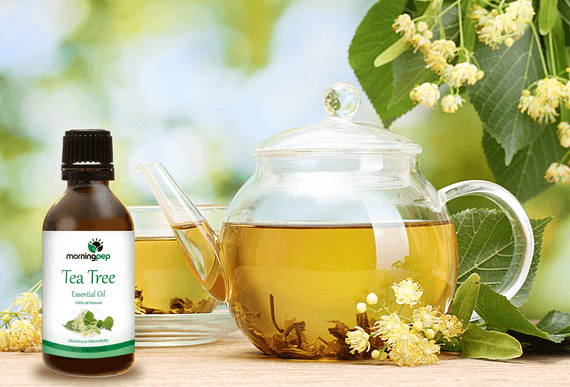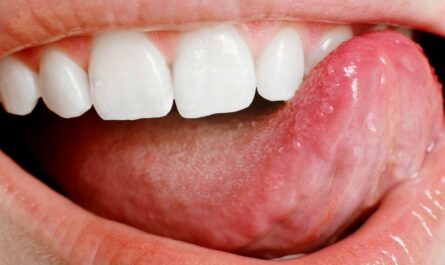Swollen gums and bleeding can be uncomfortable, painful, and sometimes embarrassing. Fortunately, you can use many home remedies to help reduce inflammation and pain associated with swollen gums and bleeding. This article will discuss the 10 best Swollen Gums & Bleeding home remedies.

6 Reasons for Swollen Gums & Bleeding
Here are some common reasons for swollen gums and bleeding:
1. Gingivitis
Gingivitis is the first stage of gum disease due to plaque buildup along the gumline. When plaque isn’t adequately removed through regular brushing and flossing, it can irritate the gums, leading to inflammation, swelling, and bleeding. Maintaining good oral hygiene practices can help prevent and manage gingivitis.
2. Poor Oral Hygiene Habits
Inadequate oral hygiene is one of the primary reasons for swollen gums and bleeding. Failing to brush and floss regularly allows plaque to accumulate, leading to gum inflammation and potential bleeding. Brushing your teeth at least twice daily is crucial.
3. Hormonal Changes
Hormonal changes, particularly during puberty, pregnancy, and menopause, can affect oral health and contribute to swollen gums and bleeding.
Increased hormone levels can make the gums more sensitive and prone to inflammation. Proper oral care during these periods is essential to minimize the risk of gum issues.
4. Nutritional Deficiencies
A lack of essential nutrients, such as vitamin C and vitamin K, can weaken the gums and increase the likelihood of swelling and bleeding. Including a balanced diet rich in fruits, vegetables, and lean proteins can help support gum health and prevent deficiencies that may contribute to oral issues.
5. Medications
Certain medications like blood thinners and antiplatelet drugs can interfere with normal clotting. This can cause gums to bleed more easily. If you are taking any medications and experience persistent gum bleeding, it is essential to consult your healthcare provider.
6. Poorly Fitted Dentures or Dental Appliances
Ill-fitting dentures or other dental appliances can cause irritation and damage to the gums, leading to swelling and bleeding. Regular check-ups with your dentist can help ensure that your dental devices fit properly and are not causing any harm to your oral tissues.
12 Natural Home Remedies for Swollen Gums & Bleeding
1. Saltwater Rinse
A saltwater rinse is one of the simplest and most effective remedies for swollen gums and bleeding. Salt has natural antibacterial properties that can help reduce inflammation and kill bacteria in the mouth.
To make a saltwater rinse, dissolve half a teaspoon of salt in a glass of warm water. Rinse your mouth with this solution for about 30 seconds, then spit it out. Repeat this process two to three times a day for best results.
2. Aloe Vera Gel
Aloe vera gel is known for its soothing and healing properties, making it a great remedy for swollen gums and bleeding. It contains antioxidants and anti-inflammatory compounds to help reduce gum inflammation and promote healing.
Apply a small amount of pure aloe vera gel to the affected area and gently massage it into the gums. Leave it on for a few minutes before rinsing your mouth with water. Repeat this process twice daily for relief.
3. Tea Tree Oil

Tea tree oil is a powerful natural antiseptic that can help reduce gum inflammation and fight off oral bacteria. Mix a few drops of tea tree oil with a carrier oil, such as coconut or olive oil.
Apply the diluted mixture to your gums using a clean cotton swab and gently massage it. Leave it on for 10 minutes, then rinse your mouth thoroughly. Use this remedy once daily, but do not swallow the oil.
4. Clove Oil
Clove oil has been used for centuries to relieve toothache and gum pain. It contains eugenol, a compound with analgesic and antibacterial properties.
Apply a small amount of clove oil to the affected gums using a cotton swab. Gently massage it in and leave it on for a few minutes. Rinse your mouth with warm water afterward. You can repeat this process two to three times a day to alleviate gum discomfort.
5. Turmeric Paste
Turmeric is a powerful spice with anti-inflammatory and antimicrobial properties. It can help reduce gum inflammation and fight off oral bacteria.
To make a turmeric paste, mix one teaspoon of turmeric powder with a few drops of water to form a thick paste. Apply the paste to your gums and let it sit for 10 minutes before rinsing your mouth with warm water. Use this remedy once daily for the best results.
6. Oil Pulling
Oil pulling is an ancient Ayurvedic practice that involves swishing oil in your mouth to remove toxins and promote oral health. Coconut, sesame, and olive oil are commonly used for oil pulling.
Take one tablespoon of your chosen oil and swish it in your mouth for 15-20 minutes. Spit out the oil into a trash can (not the sink, as it can clog the pipes) and rinse your mouth with warm water. Practice oil pulling daily to help reduce gum inflammation and improve oral health.
7. Green Tea

Green tea is rich in antioxidants that can help reduce gum inflammation and fight off bacteria. Brew a cup of green tea and let it cool down. Use the cooled tea as a mouthwash, swishing it around in your mouth for 30 seconds to a minute before spitting it out.
Drink green tea regularly and incorporate it into your oral hygiene routine for its numerous health benefits.
8. Baking Soda Paste
Baking soda is known for its ability to neutralize acids and kill bacteria in the mouth. It can help reduce gum inflammation and freshen your breath. Make a paste by mixing a small amount of baking soda with water.
Apply the paste to your gums and gently massage it for a few minutes. Rinse your mouth thoroughly with water afterward. Use this remedy two to three times a week to maintain healthy gums.
9. Chamomile Tea Compress
Chamomile tea has soothing and anti-inflammatory properties that can relieve swollen gums. Brew a cup of chamomile tea and let it cool down.
Soak a clean cloth or cotton ball in the cooled tea and apply it directly to the affected gums. Leave it on for 5 to 10 minutes. Repeat this process a few times daily to reduce gum swelling and discomfort.
10. Hydrogen Peroxide Mouthwash
Hydrogen peroxide can help kill bacteria and reduce gum inflammation. Dilute hydrogen peroxide with equal water to create a mouthwash solution.
Swish the solution in your mouth for 30 seconds, then spit it out. Be careful not to swallow the mixture. Use this mouthwash once daily or as your dentist directs to improve gum health.
11. Vitamin C-Rich Foods
Vitamin C plays a crucial role in maintaining healthy gums. Include foods rich in vitamin C, such as oranges, strawberries, kiwi, and bell peppers, in your diet to support gum health.
Vitamin C helps strengthen blood vessels and promotes gum healing. Regular vitamin C-rich foods can reduce the risk of gum bleeding and inflammation.
12. Proper Oral Hygiene
Proper oral hygiene is essential for preventing and treating swollen gums and bleeding. Brush your teeth at least twice a day using a soft-bristled toothbrush. Use fluoride toothpaste, and make sure to brush along the gumline gently.
Also, don’t forget to floss daily to remove plaque and food particles between your teeth and the gum line. Regular dental check-ups and professional cleanings are crucial for optimal gum health.
How to prevent swollen gums and bleeding?
Good oral hygiene is the most important step in preventing swollen gums and bleeding. Brush your teeth at least twice daily with a soft-bristled toothbrush and fluoride toothpaste, and floss at least once daily.
Be sure to brush gently and in circular motions. This will help to remove plaque and bacteria that can lead to gum irritation and inflammation.
Additionally, you should visit your dentist for regular checkups and cleanings. The dentist can help to identify any issues that may be causing your swollen gums and bleeding, such as gum disease or infection. If the cause is identified, the dentist can provide treatment to help prevent further damage.
Also, if you are taking any medications that might be causing your swollen gums and bleeding, speak with your doctor or pharmacist about alternative medications or treatments.
Finally, make sure to eat a balanced diet that is low in sugar and high in fiber. This will help to keep your gums healthy and reduce irritation.
FAQs
1. How long does it take for natural remedies to work on swollen gums?
The time it takes for natural remedies to work on swollen gums can vary depending on the severity of the condition and individual factors. Consistent use of the remedies for a few weeks should show noticeable improvement.
2. Are these natural remedies a substitute for professional dental treatment?
No, these natural remedies are not a substitute for professional dental treatment. It’s essential to consult a dentist for a proper diagnosis and appropriate treatment of swollen gums and bleeding.
3. Can diet affect gum health?
Yes, diet plays a significant role in gum health. A balanced diet with nutrient-rich foods like fruits and vegetables can help support healthy gums.
4. Are these remedies safe for everyone to use?
While natural remedies are generally safe, it’s essential to consider individual allergies and sensitivities. If you experience any adverse reactions or allergies, discontinue use and consult a healthcare professional.
5. When should I seek professional help for swollen gums and bleeding?
If home remedies do not provide relief or if your symptoms worsen, it’s crucial to seek professional help from a dentist. They can evaluate your condition and recommend appropriate treatment options.
Conclusion
Swollen gums and bleeding can indicate gum disease or other underlying oral health issues. While natural remedies can provide temporary relief and promote gum health, it’s important to consult a dentist for a comprehensive evaluation and treatment. Remember to maintain proper oral hygiene, eat a balanced diet, and visit your dentist regularly to keep your gums healthy.






